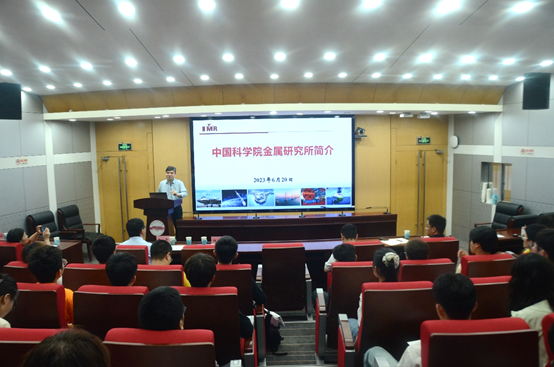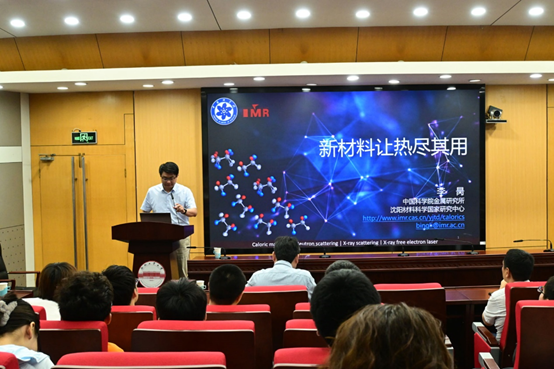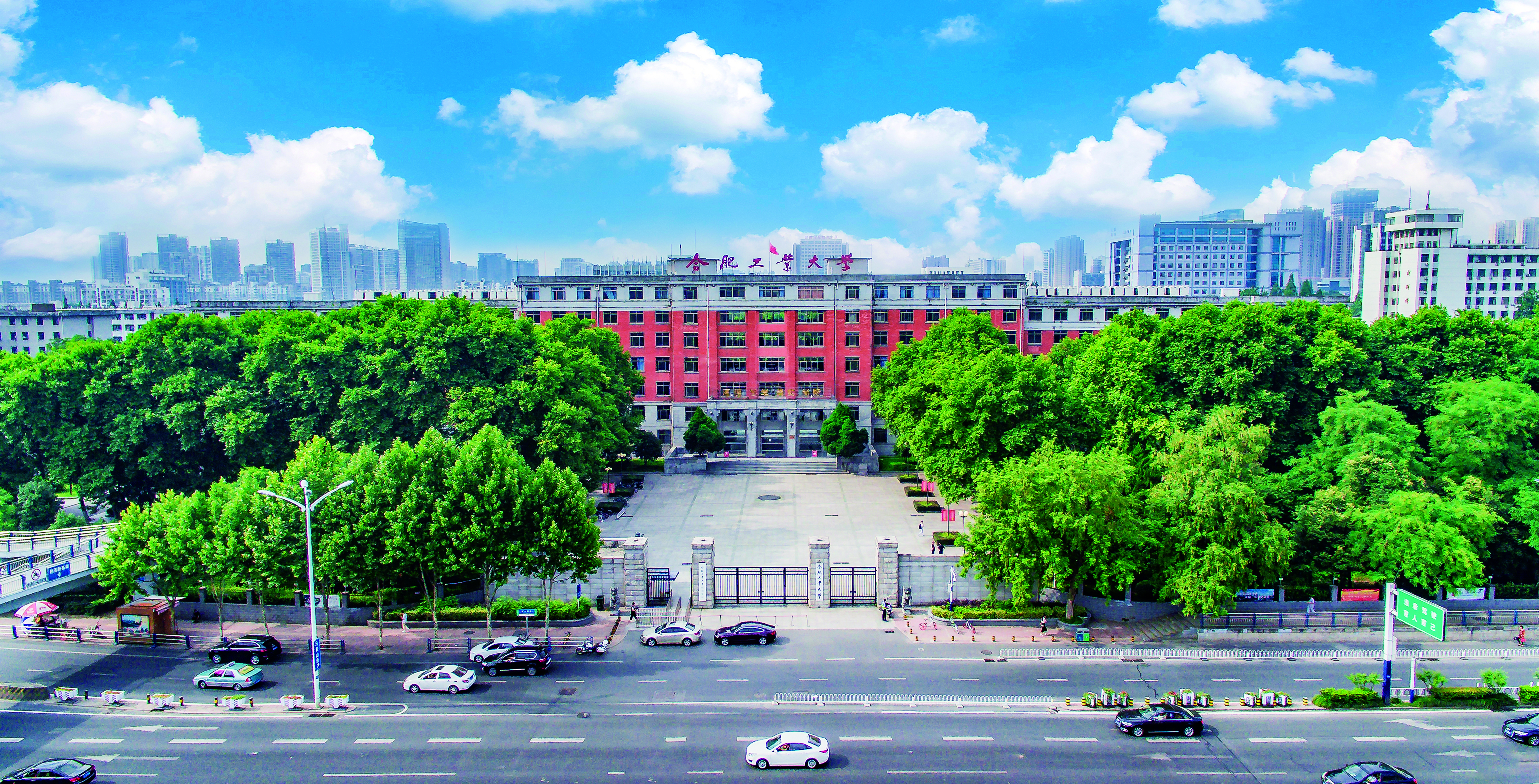On the morning of June 20, 2023, Prof. Chen Xingqiu and Prof. Li Bing of Institute of Metals, Chinese Academy of Sciences were invited to give a special lecture for the teachers and students of School of Materials Science and Engineering in the Lecture Hall on the second floor of Academic Conference Center. The report was hosted by LyuJun, Secretary of the Party Committee of the School of Materials Science and Engineering, and nearly one hundred faculty members and students attended the presentation.
Firstly, Prof. Chen Xingqiu talked about the history, scale and development of the Institute of Metals of the Chinese Academy of Sciences (IMSC) under the title of "Introduction to IMSC and the Practice of Science and Education Integration". He focused on the different perspectives such as "facing the world's scientific and technological frontiers, seizing the academic high ground", "facing the national major needs, solving the key material problems", "facing the national major needs, carrying out group-type research" and so on. "The research results of the Institute of Metals in the major scientific and technological fields of the country were introduced from different perspectives.
Under the title of "New Materials to Make Heat Useful", Prof. Bing Li focused on the team's discovery of a series of materials with Barocaloric effect through the design and exploration of plastic-crystalline materials, revealing that their unique refrigeration effect comes from a brand-new physical mechanism, which provides a brand-new way of thinking about the basic research and application development of solid-state phase-change refrigeration materials. The discovery of such materials can not only realize zero-carbon refrigeration and eliminate environmental hazards in the refrigeration field, but also realize the collection and reuse of waste heat, which is expected to play an important role in reducing carbon emissions and improving energy utilization.
During the Q&A session, Prof. Chen Xingqiu and Prof. Li Bing answered questions from the young teachers and students on how to continue their study in IOM, where to go after graduation, the development and application of Barocaloric materials, and the innovativeness of scientific research work.
Chen Xingqiu is the deputy director of the Institute of Metals, Chinese Academy of Sciences (IMS), a researcher, and the director of the Department of Materials Computing and Design at the National Research Center for Materials Science in Shenyang. He has been awarded the National Outstanding Young Scientist Fund and the National "Ten Thousand People Program" for Leading Talents in Science and Technology Innovation. His research interests include computational design of alloys and corresponding modeling, methodology and application exploration, mainly in the direction of advanced structural materials and topological quantum materials. He has undertaken more than 10 projects under the National Outstanding Young Scientist Fund, the Key R&D Program of the Ministry of Science and Technology, and the Strategic Pilot Program of the Chinese Academy of Sciences. He has participated in organizing many international and domestic conferences, and has made congress reports and invited reports in international conferences more than 50 times, mainly in Phys. Rev. Lett. and Phys. Rev. B. He has also published more than one hundred papers in journals such as Nature, Science, and Nature Materials with experimental collaborations, and has been cited more than 10,000 times.
Bing Li is a researcher at the Institute of Metals, Chinese Academy of Sciences, a member of the Academic Committee of the Institute of Metals, a member of the Academic Degree Committee of the Institute of Metals, the Deputy Director of the Department of Functional Materials and Devices Research at the National Research Center for Materials Science in Shenyang, and the PI of the Neutron Scattering Research Group of Magnetic Phase Transition, mainly engaged in the research of solid-state phase transition refrigeration materials. So far, he has published more than 80 papers in Nature, Nature Materials, Science Advances, Nature Communications and other journals. He has received many awards and honors, such as China Youth Science and Technology Award, Japan Neutron Society Award, China's Top Ten Emerging Science and Technology Figures, Shenyang Outstanding Talent, and Shi Changxu Young Science and Technology Talent Fund. At present, he is also a member of the Neutron Scattering Committee of the Chinese Physical Society, a member of the User Committee of China Scattered Neutron Source, a member of the Key Materials and Technology Committee of Electronic Components of the Chinese Instrument Society, an associate editor of Journal of Materials Science and Technology, an editorial board member of Advanced Materials and Devices, and a member of the editorial board of the Chinese Journal of Materials Science and Technology. Advanced Materials and Devices, and Youth Editorial Board of Journal of Metals.


(Chen Pengqi/Graphic Luo Laima/Audit)
